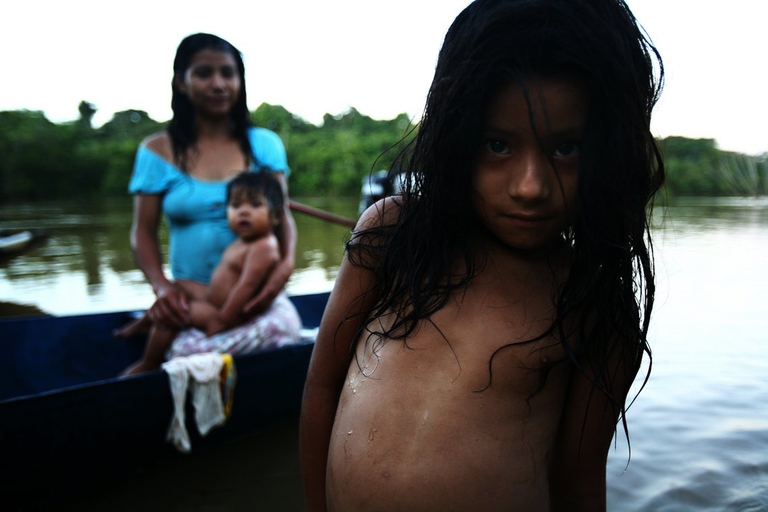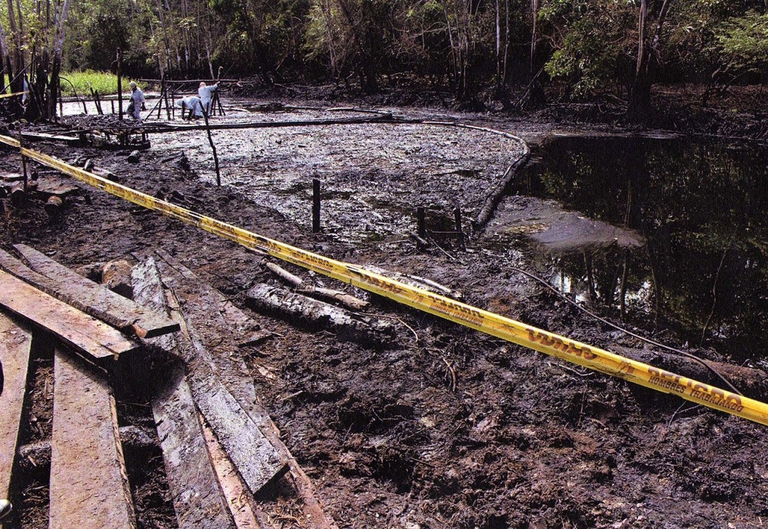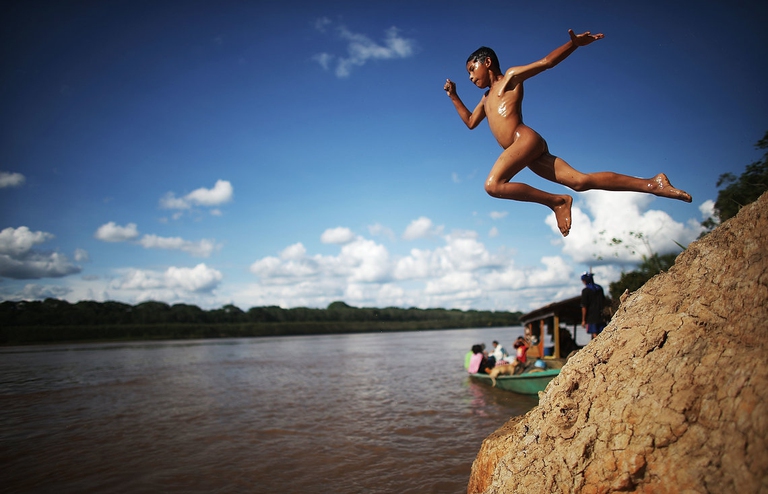
A special report from the Yuqui territory delves deep into the dreams, challenges, joys and sadness of one of Bolivia’s most vulnerable indigenous groups.
The Canadian oil company Pacific E&P, who had been granted the right to explore and extract oil in the Peruvian Amazon by the national government, has halted its exploration activities in block 135 of the rainforest (which is divided into “blocks” of oil and gas exploration). The company released a statement saying it “has made the decision to relinquish its exploration
The Canadian oil company Pacific E&P, who had been granted the right to explore and extract oil in the Peruvian Amazon by the national government, has halted its exploration activities in block 135 of the rainforest (which is divided into “blocks” of oil and gas exploration). The company released a statement saying it “has made the decision to relinquish its exploration rights in Block 135…effective immediately…We wish to reiterate the company’s commitment to conduct its operations under the highest sustainability and human rights guidelines”.
This is a great victory for the native Matsés people, who are uncontacted – i.e. “who have no peaceful contact with anyone in the mainstream or dominant society”, as defined by the NGO Survival International – whose land straddles the Peruvian-Brazilian border and is home to rich biodiversity. The decision by Pacific E&P was taken thanks to sustained pressure by Survival International, which campaigns to defend native people’s rights worldwide, and indigenous organisations such as AIDESEP.
This issue, however, is not a new one as the search for oil and other natural resources to feed global demand has often meant that peoples of the Amazon and other remote regions have been forced to confront resource companies face on. In Ecuador, for example, the Cofan people have faced problems from oil production on their lands and according to Luis Sanchez of the Tundayme region they’ve suffered numerous human rights violations at the hands of the extractive industry as well as the pollution of their rivers and land.
So far NGOs and even the Pope have argued that corporations need to consult indigenous groups before conducting activities on their ancestral lands: over time resource companies have been improving the way they interact with communities and the environment. For example major resource companies such as Repsol, Petrobras and Pemex have made some commitments to working with communities responsibly. However, organisations such as Survival International highlight that self-regulation in the resource sector isn’t sufficient. NGOs and other civil society groups are essential to making the industry accountable for its behaviour in relation to local communities and the environment.
Though consultation with uncontacted tribal peoples can present problems such as an unwanted encroachment on their way of life, the result in Peru sets a good precedent for community and land protection and it will hopefully lead to further safeguarding of the region, which is home to the largest concentration of uncontacted tribal peoples in the world.
Siamo anche su WhatsApp. Segui il canale ufficiale LifeGate per restare aggiornata, aggiornato sulle ultime notizie e sulle nostre attività.
![]()
Quest'opera è distribuita con Licenza Creative Commons Attribuzione - Non commerciale - Non opere derivate 4.0 Internazionale.
A special report from the Yuqui territory delves deep into the dreams, challenges, joys and sadness of one of Bolivia’s most vulnerable indigenous groups.
The Yuqui people of the Bolivian Amazon fight not only to survive in the face of settlers, logging and Covid-19, but to preserve their culture and identity.
Jair Bolsonaro is accused of crimes against humanity for persecuting indigenous Brazilians and destroying the Amazon. We speak to William Bourdon and Charly Salkazanov, the lawyers bringing the case before the ICC.
Activists hail the decision not to hold the 2023 World Anthropology Congress at a controversial Indian school for tribal children as originally planned.
Autumn Peltier is a water defender who began her fight for indigenous Canadians’ right to clean drinking water when she was only eight years old.
The pandemic threatens some of the world’s most endangered indigenous peoples, such as the Great Andamanese of the Andaman and Nicobar Islands in India.
The Upopoy National Ainu Museum has finally opened. With it the indigenous people of Hokkaido are gaining recognition but not access to fundamental rights.
A video shows the violent arrest of indigenous Chief Allan Adam, who was beaten by two Royal Canadian Mounted Police (RCMP) officers.









